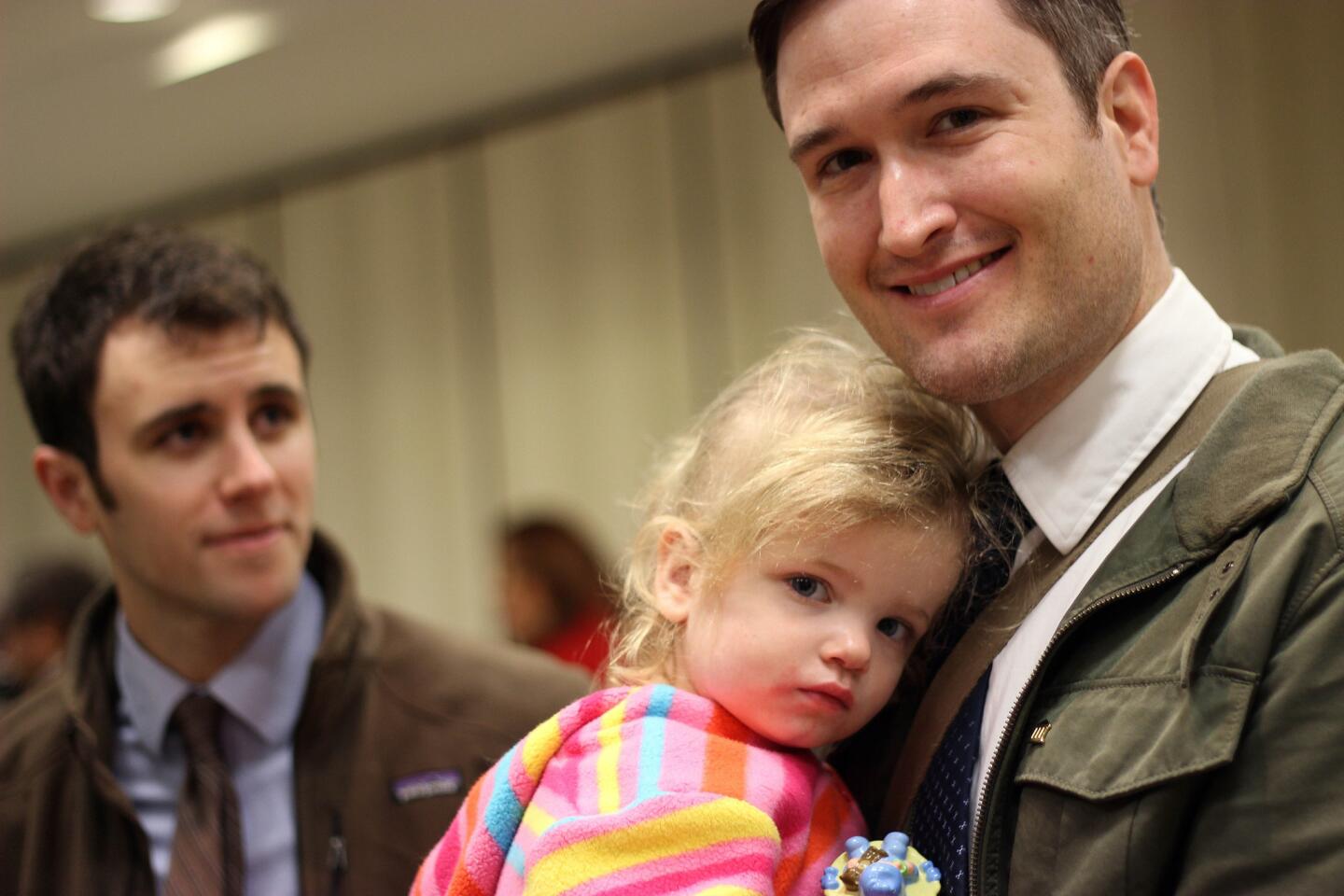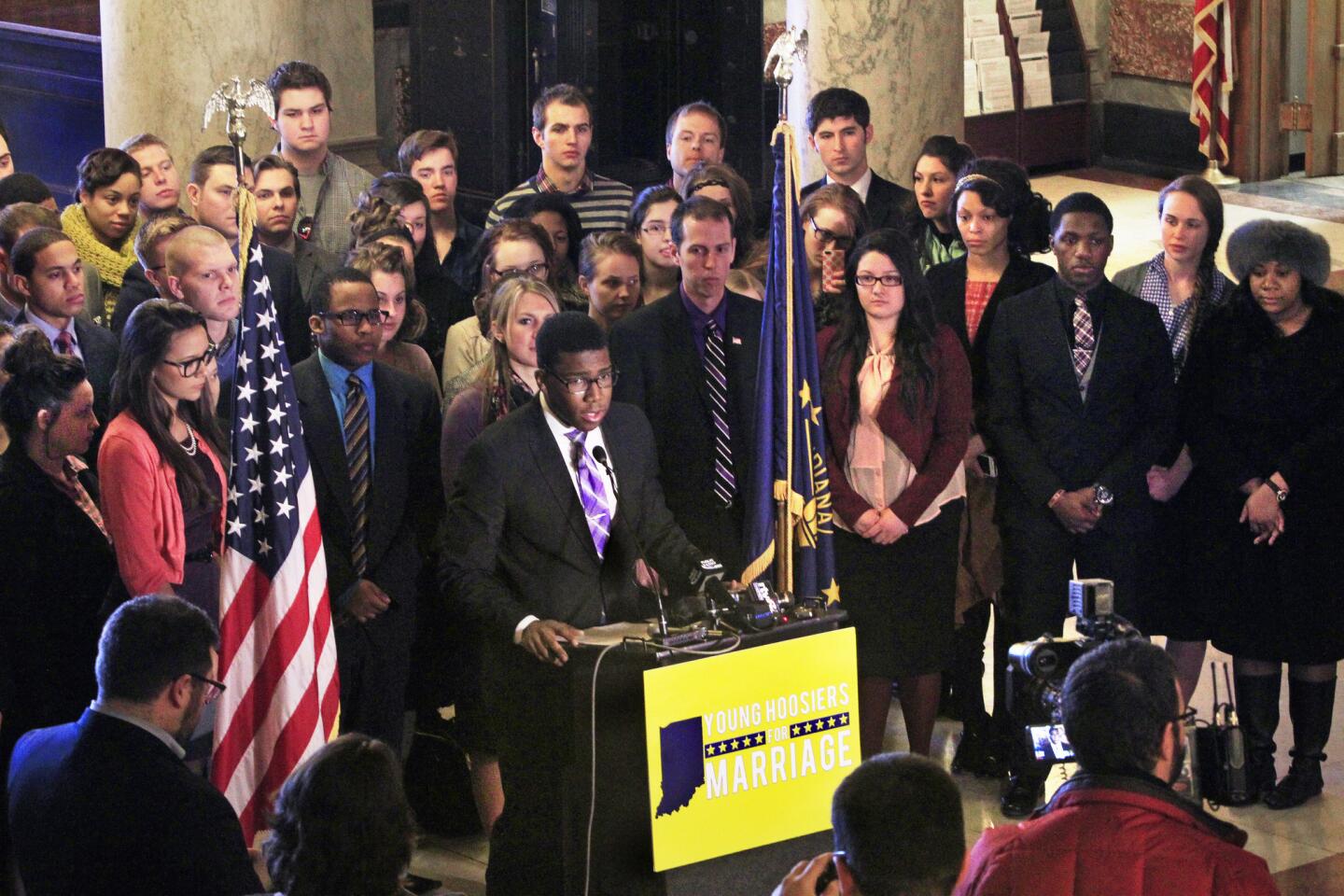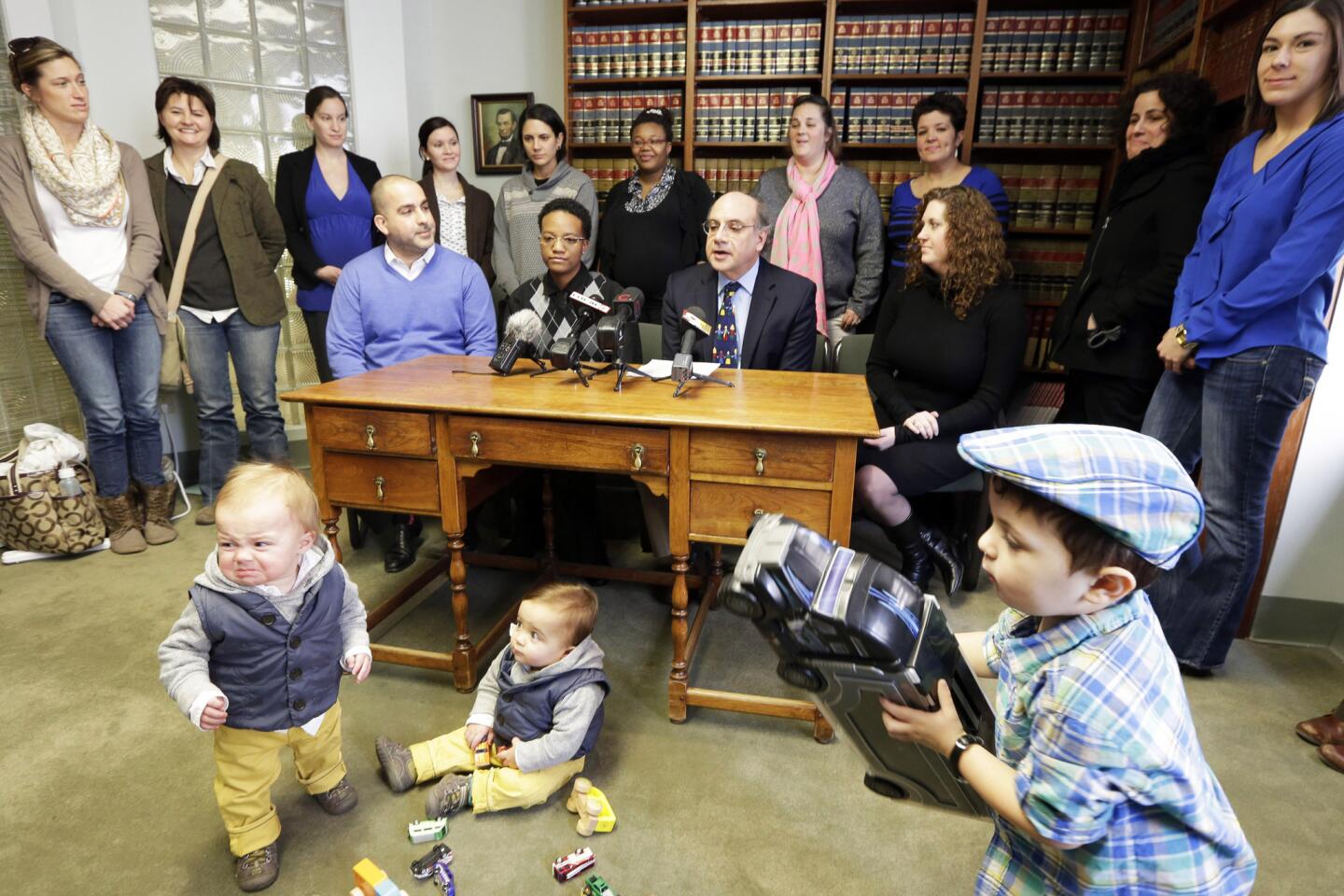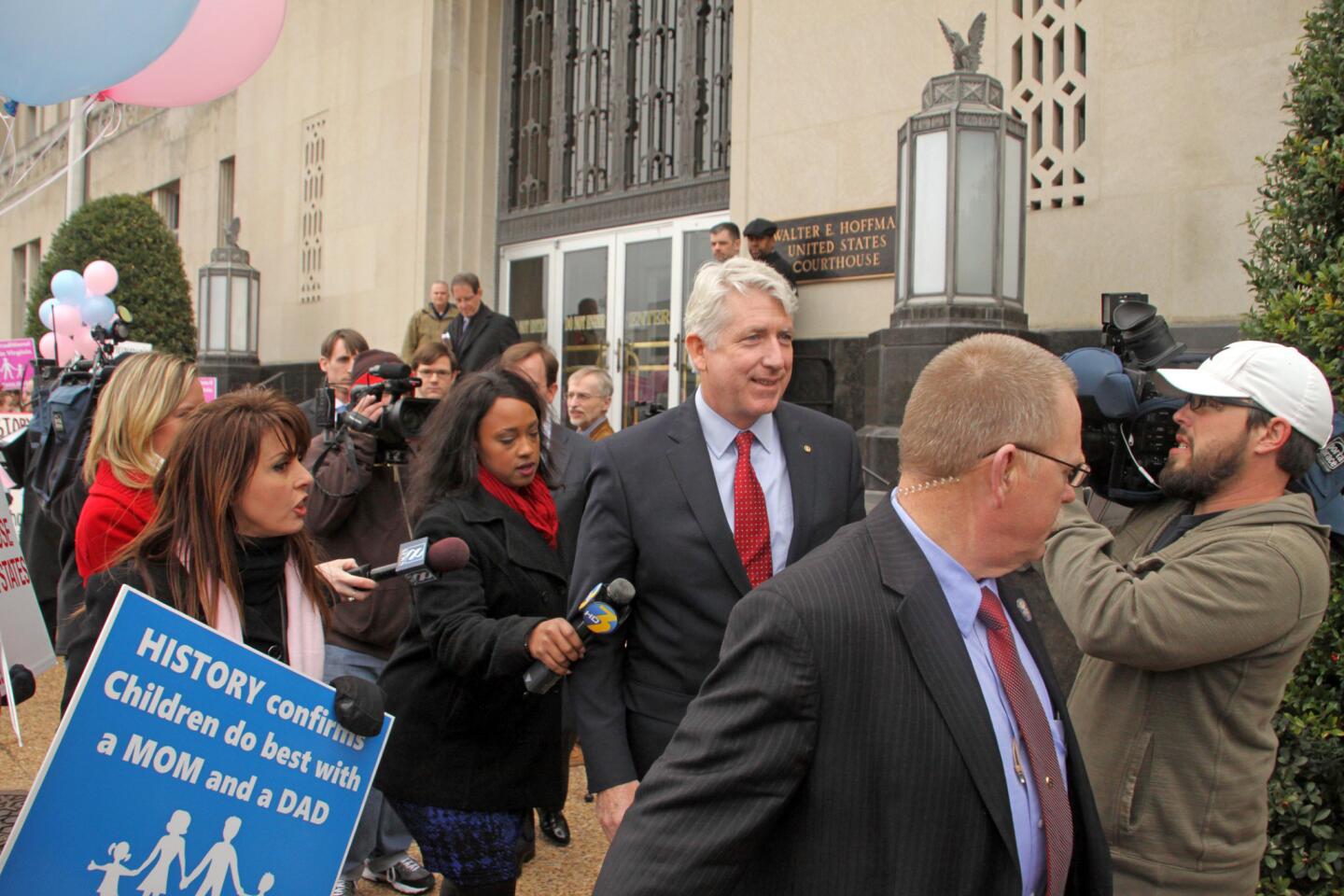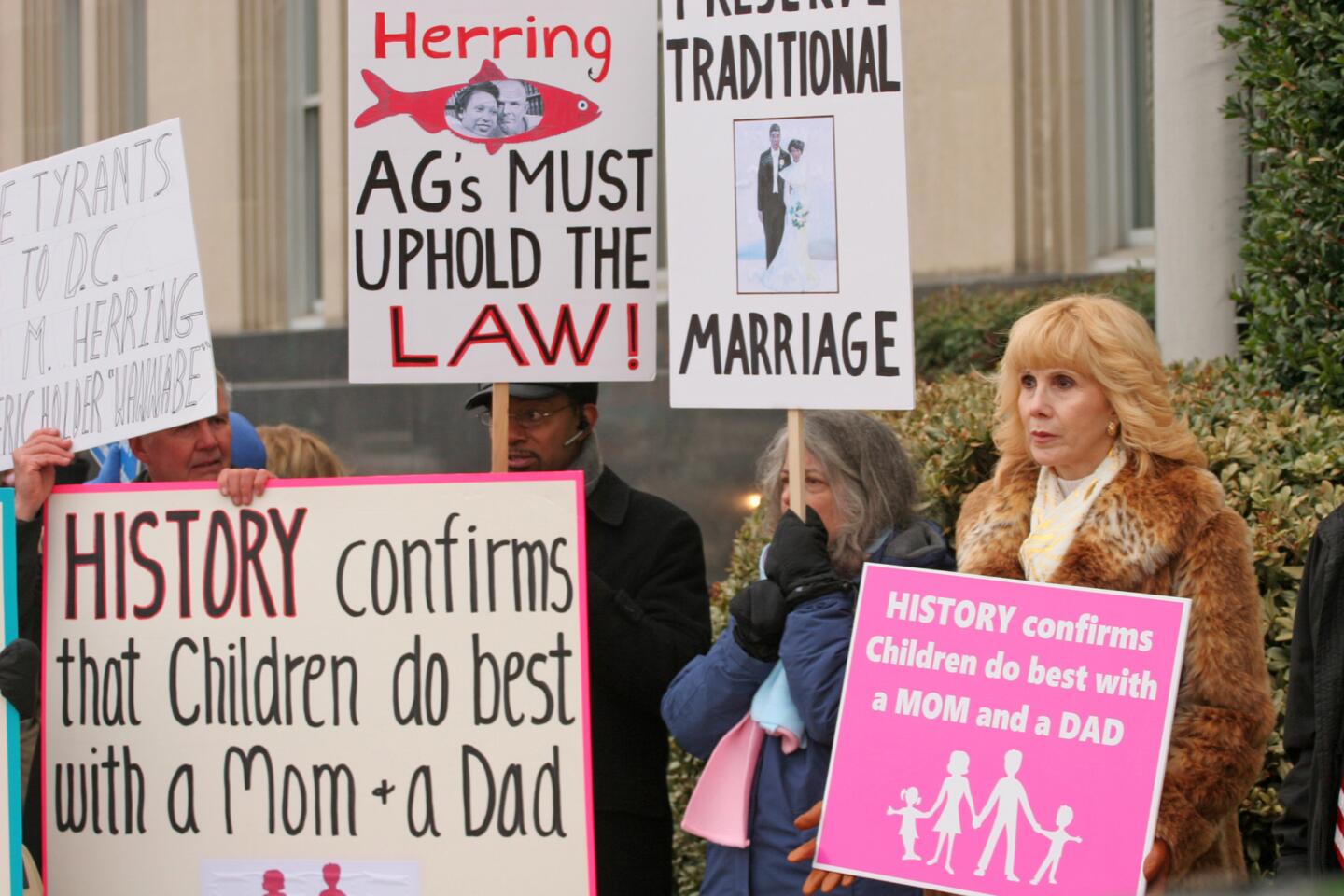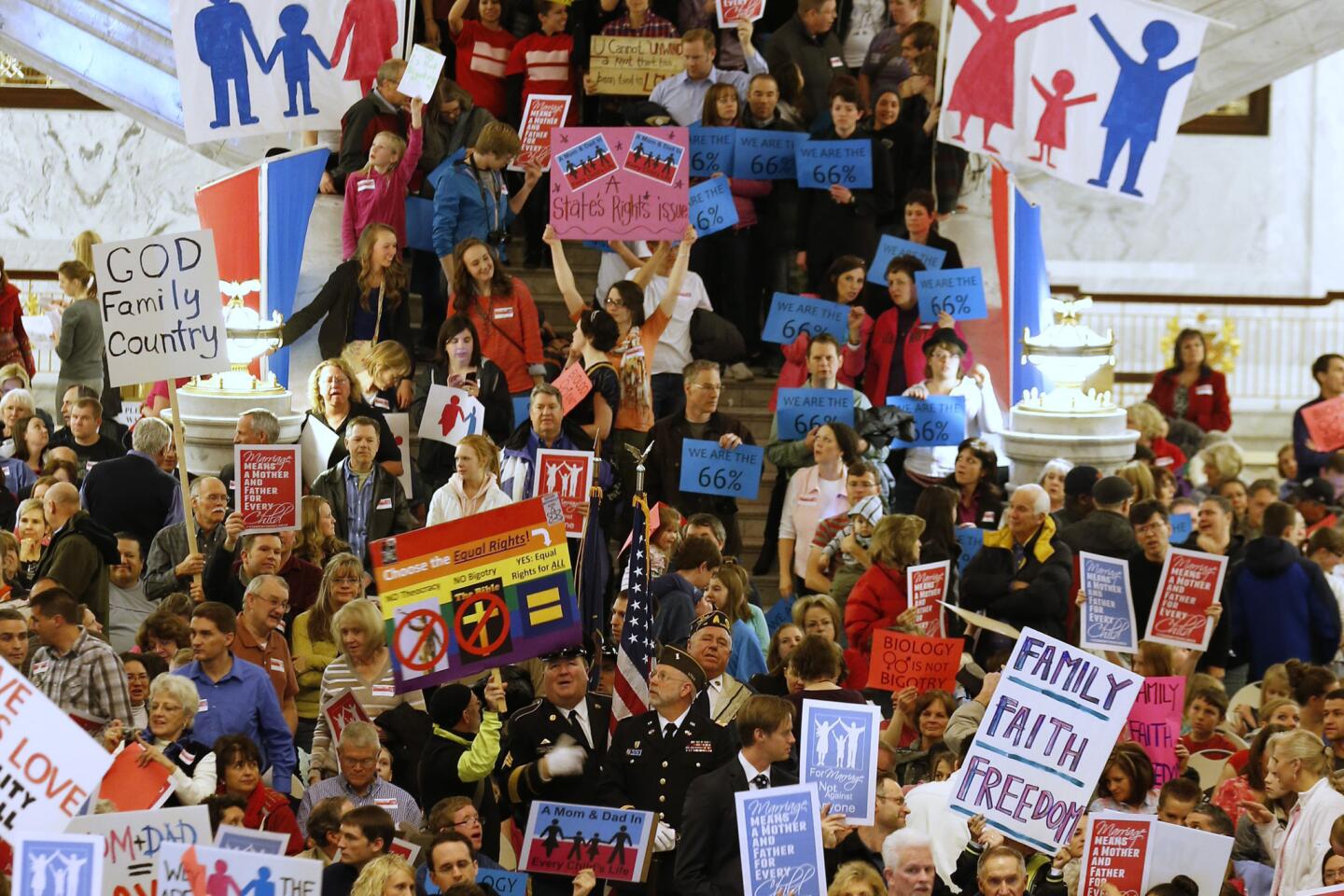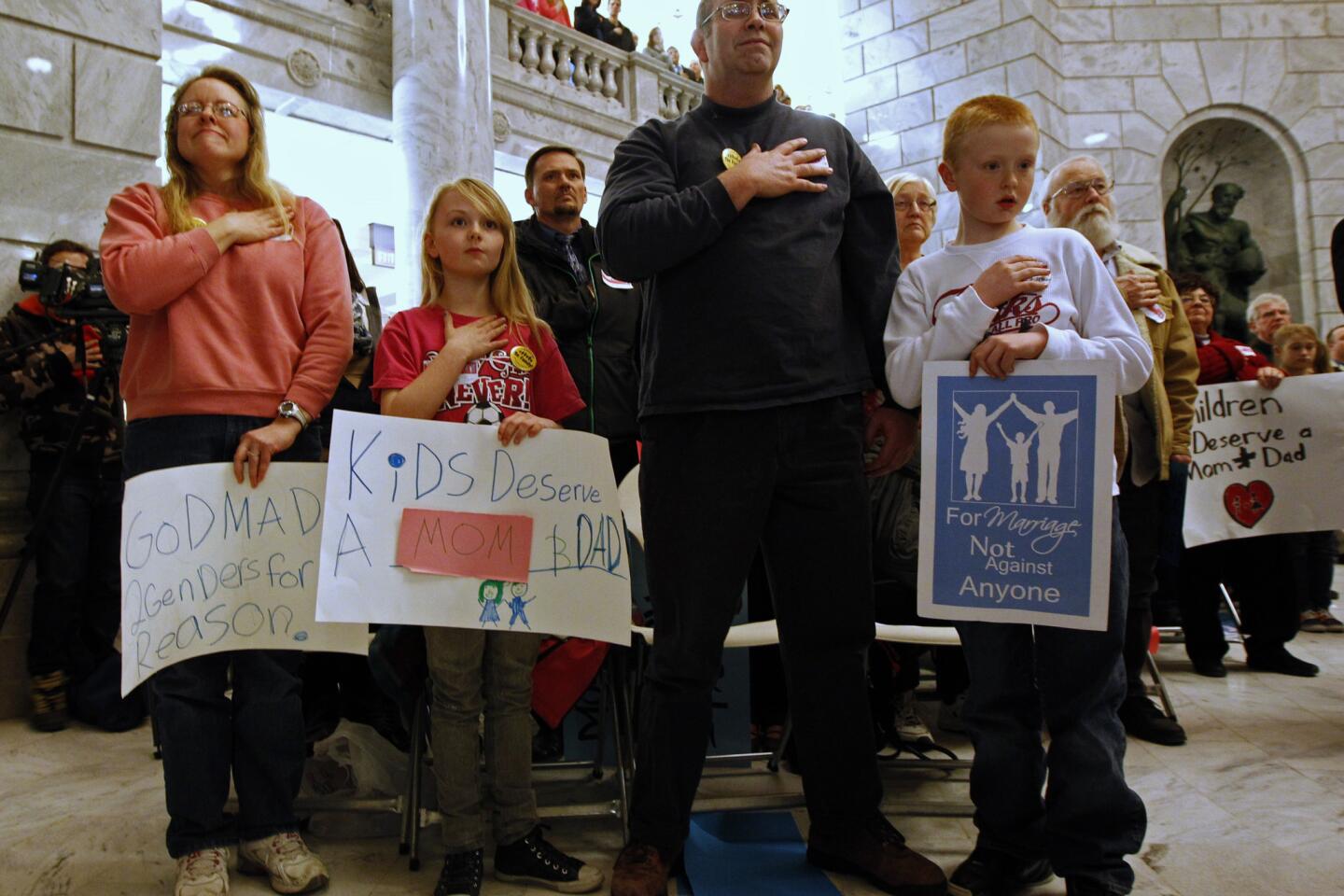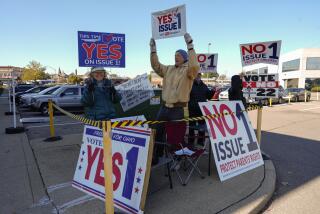Virginia ban on same-sex marriage is latest to be struck down
- Share via
When the U.S. Supreme Court struck down parts of the federal Defense of Marriage Act, it left unresolved whether couples of the same sex had a constitutional right to marry. Other courts, especially in Virginia and Utah, are filling that vacuum, setting the stage for the top court to go a second round on the issue.
Virginia is the latest state in the fray after a federal judge struck down the state’s ban on same-sex marriage as unconstitutional Thursday, arguing that the country has “arrived upon another moment in history when ‘We the People’ becomes more inclusive, and our freedom more perfect.”
In a 41-page ruling released late Thursday, District Judge Arenda L. Wright Allen used language similar to that in legal decisions in a series of other states. She cited Virginia’s past in denying interracial marriage as she struck down the state’s constitutional amendment approved by voters on 2006 that bans same-sex marriage and forbids recognition of such unions performed elsewhere.
“Tradition is revered in the Commonwealth, and often rightly so. However, tradition alone cannot justify denying same-sex couples the right to marry any more than it could justify Virginia’s ban on interracial marriage,” Wright Allen wrote. She opened her ruling mentioning Mildred Loving, at the center of the Virginia case the U.S. Supreme Court used in 1967 to eliminate laws barring interracial marriage.
The jurist, however, stayed her decision, avoiding the Utah situation where some 1,000 gay and lesbian couples married before the Supreme Court issued a stay. The Virginia case now heads to the U.S. Court of Appeals for the 4th Circuit in Richmond. The Utah case is pending before the 10th Circuit in Denver.
It is not unusual for the U.S. Supreme Court to watch how different appeals courts deal with the same issue before considering how to respond. As the final arbiter of law, the court often moves slowly and watches how lower level jurists deal with an issue before weighing in. The court can also be responsive to changing social mores and has often tested the political waters on controversial issues from slavery in the 19th century to the role of government power during the Great Depression and in more modern times on civil rights and abortion issues.
According to recent polls, U.S. society has already become more accepting of homosexuality. Slightly more than half of all Americans support same-sex marriage, compared with 27% who said they supported it in 1996. Seventeen states and the District of Columbia allow same-sex marriage. Even once-resistant institutions, such as the professional sports locker room, have been forced to deal with gay rights. A college football player, Michael Sam, will likely become the first openly gay man in the NFL.
When the Supreme Court in June struck down parts of the Defense of Marriage Act, it eliminated the legal bar that prevented same-sex couples from receiving the same federal benefits as heterosexual couples. In a dissent, Justice Antonin Scalia predicted proponents of same-sex marriage would used the majority decision to systematically attack state prohibitions.
And they have.
Dozens of suits have been filed around the country seeking to overturn state bans on same-sex marriage and other issues. On Wednesday, a judge in Kentucky ruled that the state must recognize same-sex marriages performed in other states but did not deal with the larger question of the constitutionality of same-sex marriages inside the state. In Ohio, a federal judge has allowed same-sex marriage to be recognized on death certificates.
In at least two states, Nevada and Virginia, top officials announced that they would no longer defend their state bans on same-sex marriage in court. It was that decision by newly elected Virginia Atty. Gen. Mark Herring that was a key step in the Virginia battle.
After the court decision, Herring called the ruling “a victory for the Constitution and for treating everyone equally under the law.”
“The legal process will continue to play out in the months to come, but this decision shows that Virginia, like America, is coming to a better place in recognizing that every Virginian deserves to be treated equally and fairly,” he stated.
The Virginia lawsuit was brought on behalf of two couples: Timothy Bostic and Tony London have lived together for more than 20 years and were denied a marriage license last summer by the Norfolk Circuit Court clerk. Mary Townley and Carol Schall of Chesterfield County were married in California and have a teenage daughter. They want the state to recognize their marriage.
“The court is compelled to conclude that Virginia’s Marriage Laws unconstitutionally deny Virginia’s gay and lesbian citizens the fundamental freedom to choose to marry. Government interests in perpetuating traditions, shielding state matters from federal interference, and favoring one model of parenting over others must yield to this country’s cherished protections that ensure the exercise of the private choices of the individual citizen regarding love and family,” Wright Allen wrote.
Their cause was joined last fall by lawyers Theodore Olson and David Boies, who challenged California’s ban on same-sex marriage and have been influential in getting such cases to the Supreme Court. They joined the case in hopes that quick rulings in the Virginia courts might get the issue quickly before the high court.
“Through its decision today, the court has upheld the principles of equality upon which this nation was founded.” Olson said in a statement.
“Happy Valentine’s Day to my beautiful wife Anne and to all Virginians,” Sen. Tim Kaine (D-Va.) stated on Friday. “ It’s a particularly great day in light of the federal court ruling striking down the state prohibition against same-sex marriage. I campaigned against the ban in 2006 and was very disappointed when it passed. Today, we celebrate a Virginia for lovers and remember the great Shakesperian wisdom: ‘Let me not to marriage of true minds admit impediments.’ ”
Backers of the state ban insisted that they will fight on.
“It appears that we have yet another example of an arrogant judge substituting her personal preferences for the judgment of the General Assembly and 57 percent of Virginia voters,” stated Tony Perkins, president of the conservative Family Research Council. “Our nation’s judicial system has been infected by activist judges, which threaten the stability of our nation and the rule of law.”
“There is no right to same-sex `marriage’ in the United States constitution,” Brian Brown, president of the National Organization for Marriage, stated. “In fact, the U.S. Supreme Court has said that states have the pre-eminent duty of defining marriage. The people of Virginia did just that in voting overwhelmingly to affirm marriage as the union of one man and woman. That decision should be respected by federal judges and we hope that the U.S. Supreme Court ends up reversing this terrible decision.”
Follow LATimes National on Facebook
ALSO:
Tennessee man accused of killing in-laws with bomb
2 skiers rescued after Oregon avalanche; 2 bodies still on mountain
Snowplow kills pregnant New York woman; baby in critical condition
More to Read
Sign up for Essential California
The most important California stories and recommendations in your inbox every morning.
You may occasionally receive promotional content from the Los Angeles Times.

